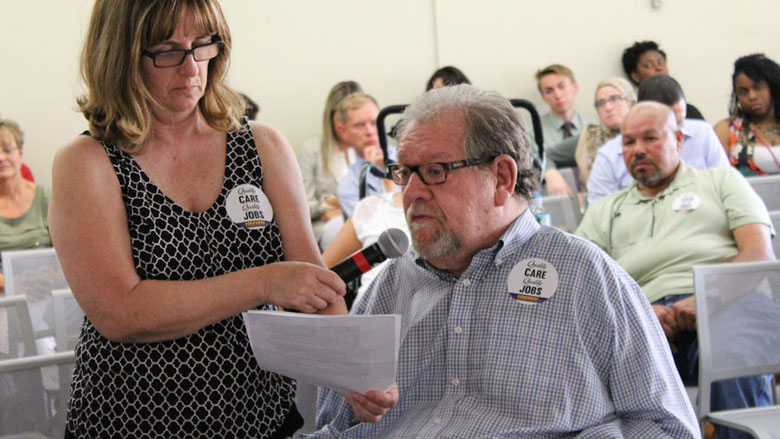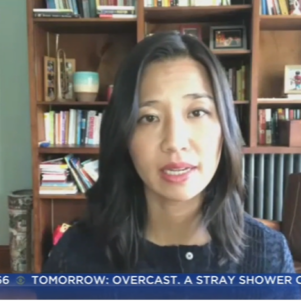Disability advocates blast proposed personal care regulations
By State House News Service | June 29, 2016, 6:44 EDT
 Charlie Carr, legislative liaison for the Disability Policy Consortium, testified Monday at a hearing regarding new overtime rules for the state’s Personal Care Attendant (PCA) program. [Photo: Antonio Caban/SHNS]
Charlie Carr, legislative liaison for the Disability Policy Consortium, testified Monday at a hearing regarding new overtime rules for the state’s Personal Care Attendant (PCA) program. [Photo: Antonio Caban/SHNS] As the Baker administration gets ready to implement new overtime regulations on personal care services next month, disability advocates are slamming the changes as “extremely scary” for those who often require more than full-time assistance with daily living activities.
At a hearing Monday in Boston, part of feedback sessions happening around the state on cost-saving changes to the state’s Personal Care Attendant program, dozens of advocates, people with disabilities, and seniors said the changes could disrupt their way of life.
“I’ve been in the program for 41 years, and it’s allowed me to come from an institution to live independently in a community, and there’s no way I’m going back – ever,” said Charlie Carr, legislative liaison for the Disability Policy Consortium. “These regulations, folks, are extremely scary. They are draconian and I think they are poorly thought out.”
Carr, who suffered a spinal cord injury 48 years ago and uses a motorized chair to get around, said he has three personal care attendants (PCAs) that help him complete daily activities like dressing, cleaning and getting into bed. Carr said he fears losing them under the new guidelines because they each work more than 40 hours combined.
Under the proposal by MassHealth, which is scheduled to go into effect no sooner than July 15, a PCA member would need overtime approval before a PCA employee is allowed to work more than 40 hours and up to a maximum of 60 hour per week.
“The PCA program has grown 23 percent from $574 million to a projected $704 million for FY17. To ensure program sustainability, the Administration is implementing an overtime management policy effective September 1, 2016. We have been working with all partners to ensure a smooth transition for MassHealth members,” Office of Health and Human Services spokeswoman Michelle Hillman wrote in a statement.
Twenty-six thousand of MassHealth’s nearly 2 million members receive PCA services. There are currently 38,700 people employed as PCAs, according to the the Office of Health and Human Services.
— Written by Antonio Caban
Copyright State House News Service











